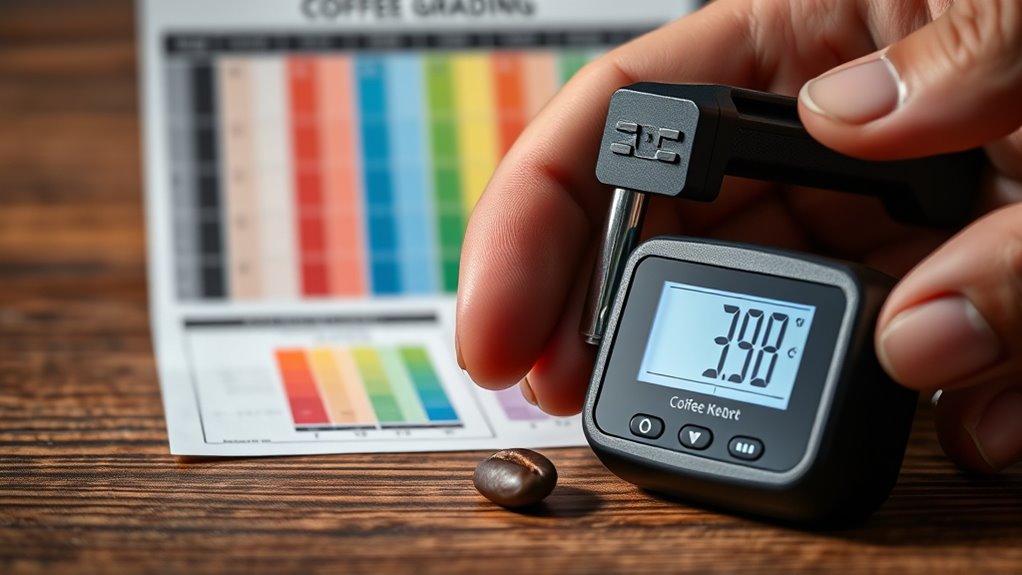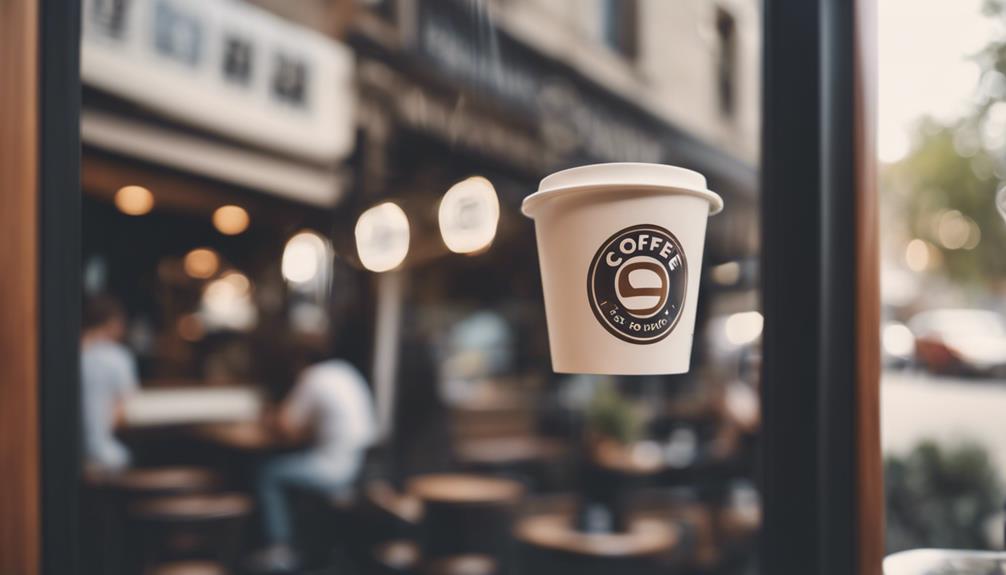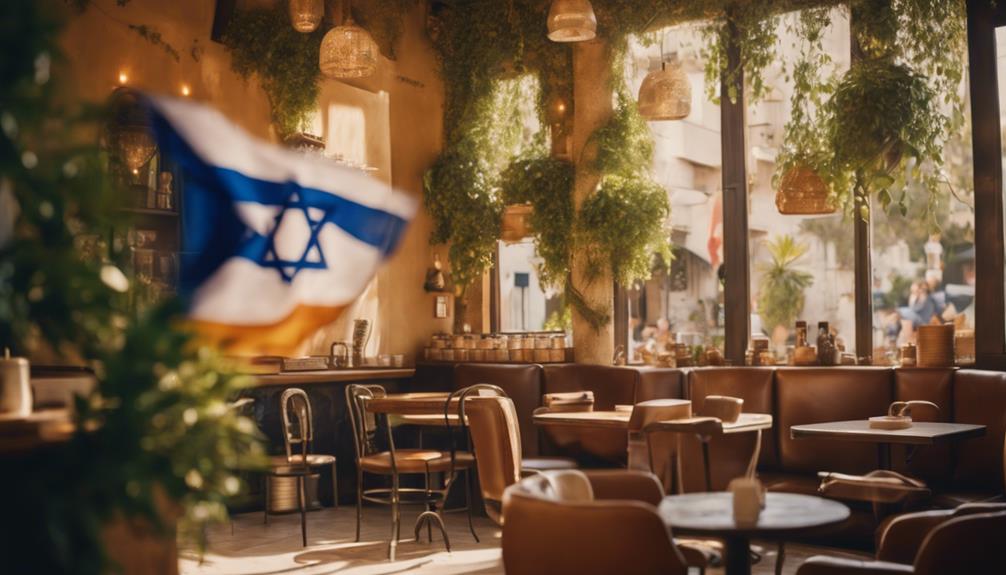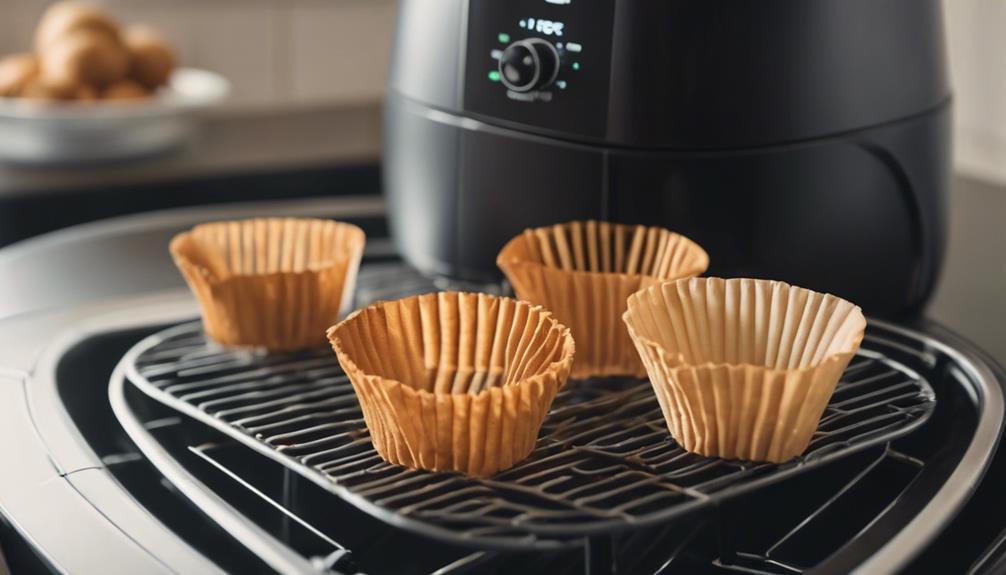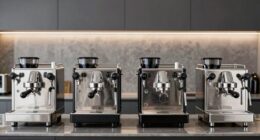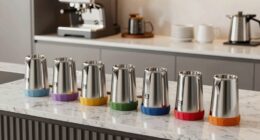Understanding specialty coffee grading and Q-scoring helps you see how experts assess quality by examining aroma, flavor, and appearance. These standards distinguish exceptional beans from average brews, ensuring consistency and excellence. Q-scoring provides an objective score that highlights key attributes like aroma complexity and taste. When you get the hang of these evaluation methods, you’ll better appreciate what makes a high-quality cup. Keep exploring to uncover more about how these grading processes elevate your coffee experience.
Key Takeaways
- Specialty coffee is distinguished by superior bean quality, evaluated through detailed standards focusing on aroma, flavor, and defects.
- Coffee grading involves rigorous cupping protocols to assess overall quality, ensuring only high-standard beans are labeled “specialty.”
- Q-Scoring provides an objective numerical evaluation of aroma, flavor, aftertaste, and appearance, aiding consistency and comparison.
- High-grade specialty coffee exhibits clean, complex aromas like floral, fruity, or nutty, indicating excellent processing and cultivation.
- Grading and Q-Scoring help maintain quality from farm to cup, emphasizing craftsmanship and identifying exceptional coffees through sensory evaluation.
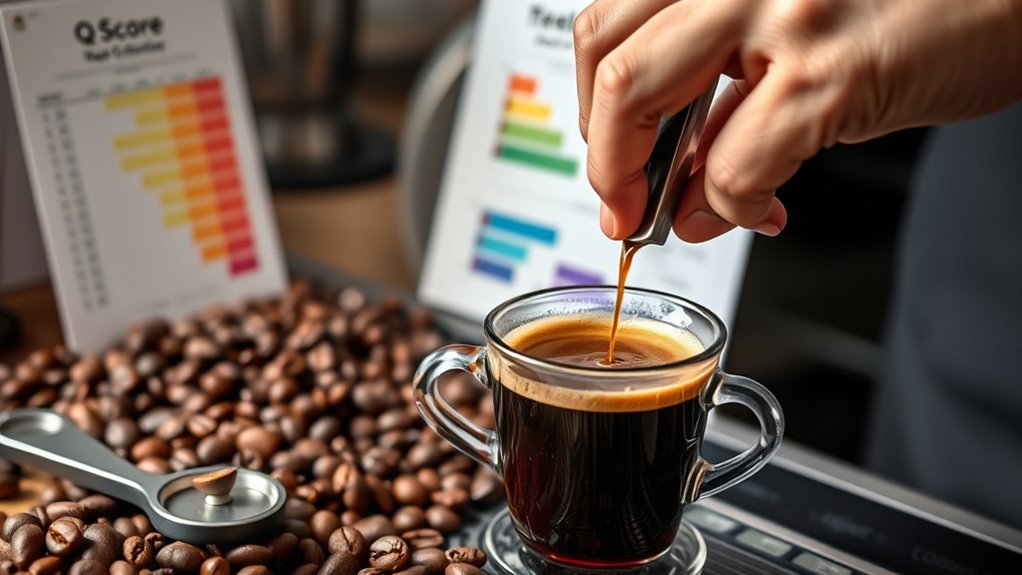
Have you ever wondered what sets specialty coffee apart from regular brews? It all begins with the quality of the beans and how they’re evaluated through strict grading standards. When you inhale a cup of specialty coffee, the first thing that hits you is its rich, complex coffee aroma. That aroma isn’t just pleasant—it’s a sign of high-quality beans that have been carefully cultivated and processed. Coffee aroma is a key aspect in grading, helping experts distinguish premium beans from those that fall short of the mark. The grading standards are designed to assess the beans’ overall quality, including factors like flavor, aroma, and defect levels. These standards are rigorous, ensuring only the best beans earn the label “specialty.” They involve detailed cupping protocols, where trained graders evaluate aroma, body, acidity, and aftertaste. This meticulous process guarantees that each batch meets specific benchmarks, setting a high bar for quality. Additionally, Q-Scoring provides an objective measurement of these attributes, further ensuring consistency and excellence in specialty coffee.
When you buy or sip specialty coffee, you’re experiencing the results of these exacting standards. It’s not just about the taste but also about the journey from farm to cup, where every step is scrutinized to maintain consistency and excellence. Grading standards help identify beans with superior aroma profiles, vibrant acidity, and balanced flavors. These standards also help differentiate between acceptable and exceptional beans, which can be subtle but impactful. For example, a high-grade coffee will typically have a clean, well-defined aroma—floral, fruity, or nutty notes that excite the senses. In contrast, lower-grade beans may have muted or off-putting aromas, indicating defects or poor processing.
Q-Scoring takes it a step further by quantifying these qualities. It assigns a numerical value based on factors like aroma, flavor, aftertaste, and visual inspection. This scoring system offers an objective way to compare coffees and identify those that truly stand out. When your favorite specialty coffee is Q-Scored highly, it signals that experts have found it to possess exceptional aroma, flavor complexity, and overall quality. This system helps roasters and buyers make informed decisions, ensuring you get a consistently excellent experience with each cup. Ultimately, understanding the role of coffee aroma and grading standards reveals why specialty coffee is revered—because it’s crafted with precision, passion, and a relentless pursuit of perfection.
Frequently Asked Questions
How Do Q-Scores Impact Coffee Pricing?
Q-scores directly impact coffee pricing by influencing perceived quality. When your coffee receives a high Q-score, it signals grading accuracy and exceptional quality, leading to a higher price. Conversely, lower scores can cause price fluctuation downward, reflecting perceived flaws. As a producer or buyer, understanding Q-scores helps you gauge market value, ensuring your coffee is priced fairly based on its quality and grading precision.
Can a Coffee’s Grade Change Over Time?
Think of a coffee’s grade as a snapshot in time; it can change due to coffee freshness and grading variability. Over months, storage conditions and aging may impact quality, causing the grade to fluctuate. Additionally, different graders might assess a coffee differently, leading to grading variability. So, yes, a coffee’s grade can change, reflecting its evolving quality and the subjective nature of evaluation.
Are Q-Scores Standardized Globally?
Q-scores aren’t fully standardized globally because grading standards and certification processes vary by region and organization. While the Q-Grader certification aims to ensure consistency, differences still exist in how scores are applied and interpreted worldwide. As a coffee professional, you should realize that local practices influence Q-scores, so comparing them across countries requires understanding each grading system’s specific standards and certification processes.
How Does Climate Affect Coffee Grading?
Imagine lush coffee farms basking in sunlight, their flavors shaped by climate variability and altitude effects. You notice that warmer temperatures can ripen cherries unevenly, lowering quality, while cooler altitudes slow maturation, enhancing complexity. Climate influences bean development, affecting aroma, acidity, and body—all essential for grading. You see how shifts in weather patterns can make or break coffee scores, emphasizing the importance of selecting beans from specific environments for top-tier quality.
What Training Is Required for Q Grading Certification?
To obtain Q grading certification, you need to complete specialized coffee sensory training and pass a rigorous exam administered by the Coffee Quality Institute. The training involves hands-on practice in cupping, aroma identification, and flavor evaluation. You’ll learn to identify defects, score coffees accurately, and develop your palate. This certification is essential for those aiming to professionally assess and grade specialty coffees, ensuring high-quality standards across the industry.
Conclusion
Now that you understand the grading and Q-scoring process, imagine what discovering a truly exceptional coffee could mean for you. Will your next cup reveal flavors you’ve never experienced before? As you explore these grading secrets, a whole new world of specialty coffee awaits—one that could change your brewing game forever. Are you ready to taste the difference and uncover the hidden stories behind each sip? The journey into true coffee mastery is just beginning.
